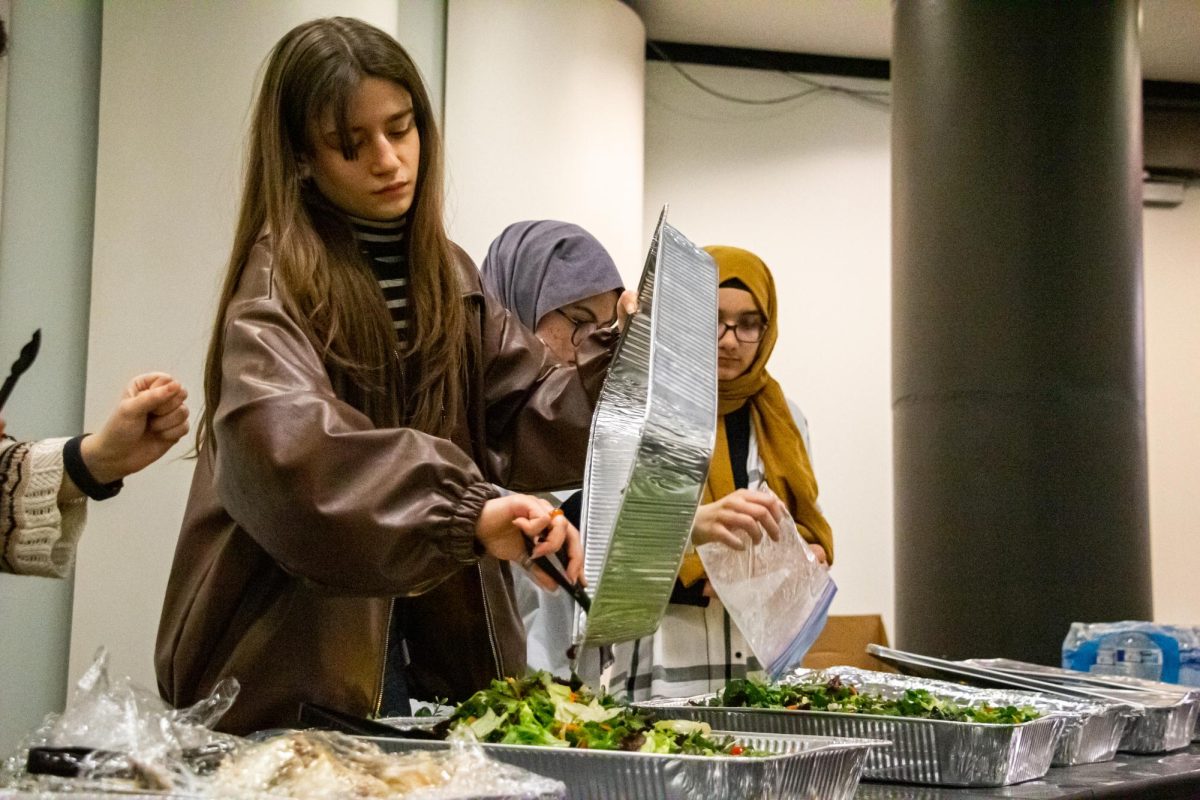The walls of room 1.510 in the George I. Sánchez Building displayed gold balloons and banners reading “Ramadan Mubarak.” The tables, decorated with green and gold table runners and candles, seated students who ate traditional Turkish food while chatting with those around them.
Dialogue Student Association, an organization that aims to provide a platform for people of different backgrounds to come together, hosted two Iftars for Muslim and non-Muslim students. Iftar translates to “break-fast” in Arabic and occurs during Ramadan, the ninth month in the Islamic lunar calendar during which Muslims fast from sunrise to sunset.
Mustafa Yazici, psychology senior and DSA president, said Ramadan acts as a time for those practicing to increase their generosity, donations and volunteering.
“Any type of good deed is highly valued,” Yazici said. “Offering food to college students in this time, regardless of where they come from, is what Ramadan is about.”
DSA’s Iftars bring in 80 to 90 attendees each year, and their attendance for their March 19 Iftar reached around 100 people. Alperen Yasar, mechanical engineering senior and DSA executive advisor, said his favorite part of the Iftars is meeting new people.
“We always see new faces, which is nice to see,” Yasar said. “What was really nice about last week’s Iftar is that I met someone that purely saw us off of Instagram and decided to come. To me, it was great because we always had to rely on inviting friends and those friends inviting friends.”
Meals eaten during Iftar vary by culture, but the social aspect of the dinners remains constant across all Muslim communities.
“You’re always inviting people or you’re always getting invited,” Yasar said. “That’s definitely the social aspect of it, the fact that you don’t eat by yourself for a whole month.”
After opening with a presentation answering common questions about Ramadan, such as why Muslims fast, students lined up to receive their food and those fasting waited until 7:46 p.m. to break their fasts.
Yazici said Iftar represents more than the meal; it serves as a good opportunity for people to come together and learn more about each other.
“(Iftar is) also about the conversations that take place and the relationships that are being formed during these dinners,” Yazici said. “It’s important for us to be open to people of all backgrounds because that’s what DSA is about.”
Isaiah Talamantez, a neuroscience sophomore and non-Muslim attendee, said DSA’s Iftar served as his first Iftar experience, and he found it unique and welcoming.
“To open the doors and make food for everybody for free is an amazing thing,” Talamentez said. “It allows people to open their minds and experience new things.”
Jazhiel Segura-Monroy, an electrical computer engineering sophomore and non-Muslim attendee, said there may be hesitancy within communities to learn about new religions, but he thinks doing so holds importance.
“In the workplace, in school, and in everyday life, you’re talking to people (from) completely different backgrounds,” Segura-Monroy said. “It’s easier to understand each other if you understand where they’re coming from.”














